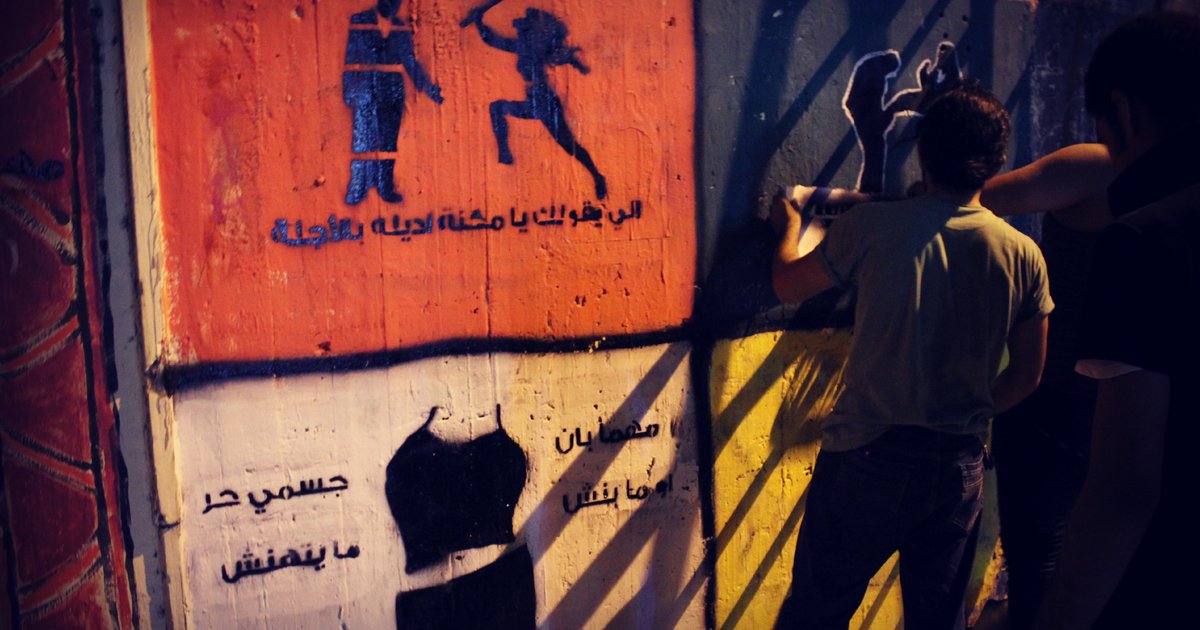This is a message that is exclusive to specific women of a certain class assaulted by a sexual predator who was exposed due to the brave efforts of dozens of young women who came forward with their stories and amplified others’. This doesn’t apply to women who come from different social backgrounds, such as from less privileged lower middle class women for instance who are not even allowed to post videos on Tik Tok.
One case in point is that of Menna Abdel Aziz who, after broadcasting a video alleging she was raped and filmed, was later arrested herself instead of being summoned for testimony and her alleged rapist arrested.
In fact, another woman, Hadeer El Hadi was arrested and detained just one day after the public prosecutor was hailed for the arrest of Zaki.
It is not just about social class but also about political disposition. For example, women who belong to political opposition are granted no protection. Instead, assaults against them are justified. This was the case for Laila, Mona and Sanaa. A day after they were attacked, they went to the prosecutor’s office to file a complaint against their assailants. Instead of offering protection to the women, Sanaa, still suffering from injuries sustained from the attack, was abducted by plain clothed men outside the public prosecutor’s office only to reappear in state security.
The public prosecutor issued a statement justifying the kidnapping rather than condemning the behavior. The same inaction was true when activist Esraa Abdel Fattah was kidnapped and tortured by Egyptian security.
At the time of writing, Sanaa remains locked up in the notorious pre-trial detentions which have become the Egyptian regime’s favorite flavor of imprisonment without due process. Many women like Mahienour El-Massry, Solafa Magdy and others have been arrested having committed no crimes, and remain in jail.
The inaction of public prosecution to the injustice inflicted upon Sanaa Seif reflects complicity that has gone beyond the usual. That is why the story of Ahmed Bassam Zaki presented itself as an opportunity to whitewash the state’s violence against women – an opportunity that was fully seized and capitalized on.
Whitewashing a system
An important aspect of Zaki’s crimes is that they were against women of his own class; daughters to very wealthy and powerful people. This is perhaps best exemplified by a presenter on Al Kahera Wal Nas, a channel loyal to the Egyptian regime, when he referred to Ahmed Zaki’s victims as banatna, which can be translated to ‘our daughters’ or ‘our girls’.
Zaki was not only instrumentalized to whitewash the public prosecutor’s shameful record against women activists, but scapegoating him served to alleviate pressure off elite institutions like the AIS and the AUC, who not only failed to act, but offered Zaki protection.
AIS went so far as to protect Zaki at the time accusations were made against him, a crime not just against the girls he already assaulted but against the women he would later assault in the American University in Cairo.
PrintWael Eskandar | Radio Free (2020-07-24T00:00:00+00:00) Egypt: no country for all women. Retrieved from https://www.radiofree.org/2020/07/24/egypt-no-country-for-all-women/
Please log in to upload a file.
There are no updates yet.
Click the Upload button above to add an update.
